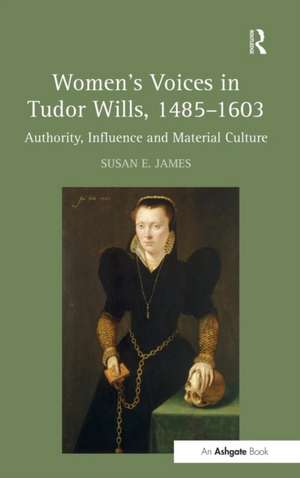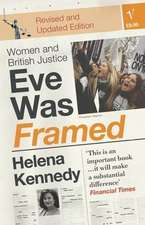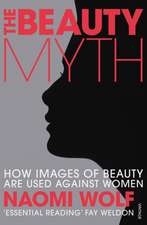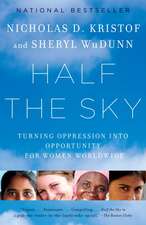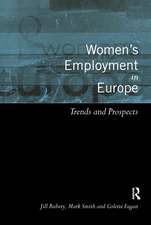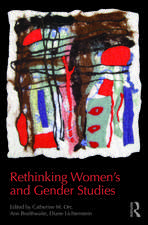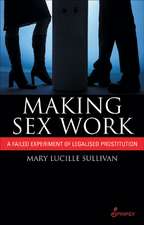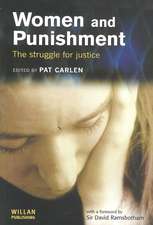Women's Voices in Tudor Wills, 1485–1603: Authority, Influence and Material Culture
Autor Susan E. Jamesen Limba Engleză Hardback – 8 mai 2015
| Toate formatele și edițiile | Preț | Express |
|---|---|---|
| Paperback (1) | 263.15 lei 6-8 săpt. | |
| Taylor & Francis – 14 oct 2024 | 263.15 lei 6-8 săpt. | |
| Hardback (1) | 1006.35 lei 3-5 săpt. | +30.96 lei 7-13 zile |
| Taylor & Francis – 8 mai 2015 | 1006.35 lei 3-5 săpt. | +30.96 lei 7-13 zile |
Preț: 1006.35 lei
Preț vechi: 1105.88 lei
-9% Nou
Puncte Express: 1510
Preț estimativ în valută:
192.56€ • 201.59$ • 159.33£
192.56€ • 201.59$ • 159.33£
Carte disponibilă
Livrare economică 15-29 martie
Livrare express 01-07 martie pentru 40.95 lei
Preluare comenzi: 021 569.72.76
Specificații
ISBN-13: 9781472453822
ISBN-10: 1472453824
Pagini: 332
Dimensiuni: 156 x 234 x 19 mm
Greutate: 0.75 kg
Ediția:1
Editura: Taylor & Francis
Colecția Routledge
Locul publicării:Oxford, United Kingdom
ISBN-10: 1472453824
Pagini: 332
Dimensiuni: 156 x 234 x 19 mm
Greutate: 0.75 kg
Ediția:1
Editura: Taylor & Francis
Colecția Routledge
Locul publicării:Oxford, United Kingdom
Public țintă
AcademicNotă biografică
Susan E. James is an historian and independent researcher. She received her PhD from Cambridge University and is the author of Kateryn Parr: The Making of a Queen (Ashgate, 1999), The Feminine Dynamic in English Art (Ashgate, 2008), and a contributor to the Oxford Dictionary of National Biography (2004).
Cuprins
Introduction; 1: The Performance of Death; 2: Identity and Remembrance; 3: Women's Work; 4: The Dispersal of Assets; 5: The Dispersal of Assets; 6: The Dispersal of Assets; Conclusion
Recenzii
"This book is highly recommended for its topic, approach, and new perspectives on women’s wills in the Tudor epoch. James presents her views with clarity and at a welcome pace." - George Lazaroiu, Institute of Interdisciplinary Studies in Humanities and Social Sciences, NY, and Spiru Haret University, Bucharest, Romania
"Does James succeed in allowing us access to the voices of ordinary women? The answer is yes, and with an extraordinary level of detail. Her desire to focus on women’s common experience, however, introduces the idea of a more “universal” Tudor woman than some historians would be willing to accept. But the book should be read by everyone interested in women’s voices, especially in this period. The great strength of James’s book is the amount of knowledge she has so admirably extracted from her sources. Wills really are so much more than mere transfers of property." - Judith Spicksley, University of York, UK
"This is an important contribution that analyses an impressive body of data. James’s investigation of women’s wills sheds light on the concerns, preoccupations and activities of women in Tudor England and raises important new questions about gender and inheritance." - CHARMIAN MANSELL, UNIVERSITY OF EXETER, UK
"Does James succeed in allowing us access to the voices of ordinary women? The answer is yes, and with an extraordinary level of detail. Her desire to focus on women’s common experience, however, introduces the idea of a more “universal” Tudor woman than some historians would be willing to accept. But the book should be read by everyone interested in women’s voices, especially in this period. The great strength of James’s book is the amount of knowledge she has so admirably extracted from her sources. Wills really are so much more than mere transfers of property." - Judith Spicksley, University of York, UK
"This is an important contribution that analyses an impressive body of data. James’s investigation of women’s wills sheds light on the concerns, preoccupations and activities of women in Tudor England and raises important new questions about gender and inheritance." - CHARMIAN MANSELL, UNIVERSITY OF EXETER, UK
Descriere
Contributing an original dimension to the study of women in 16th-century England, this pioneering work examines the largest corpus of women’s private writings available: their wills. Through an intensive analysis of more than 1200 wills, women from all parts of the country and all strata of society are revealed as articulate, opportunistic, and capable individuals who, despite legal and cultural limitations, exercised authority over their own lives and influenced the lives of their heirs after their death.
